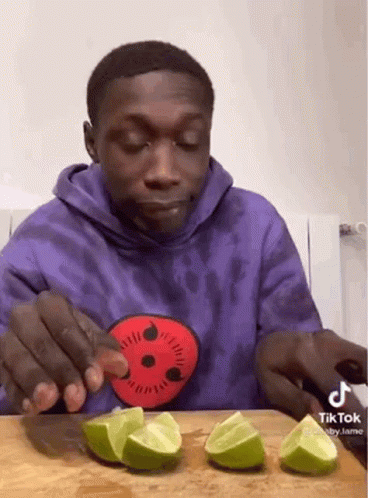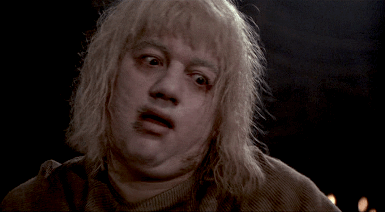Some of my best friends own pickup trucks.
Kind of a riff on the bad drivers thing - how about when you see a seriously bad driver and follow them for a while, multiple bad moves…and then when you get a chance to see them, it’s a friend.
lol
Jokes on you, I don’t have any friends.

Or my favorite: I’m not always a jerk, but when I am, I’m driving my father-in-law’s pickup ![]()
i have told you sorry multiple times : )
Use of the word “schizophrenic” to describe unexpected, unpredictable or inconsistent behavior of an individual, group or organization (particularly of a sports team). Schizophrenia is a tragic illness which is treatable but very difficult to do so given the patient sees nothing wrong with their version of reality.
From the Mayo Clinic:
Schizophrenia is a serious mental disorder in which people interpret reality abnormally . Schizophrenia may result in some combination of hallucinations, delusions, and extremely disordered thinking and behavior that impairs daily functioning, and can be disabling. People with schizophrenia require lifelong treatment.
Every time I hear the term misused I cringe while recalling patients (and family members) I have interacted with over the years and the burdens they carry. I have seen it used by writers covering the spectrum of ability. I wonder if they are meaning Multiple Personality Disorder (now known as Dissociative Identity Disorder) but that is too burdensome to write out? DID can be just as tragic and usually results from multiple traumatic experiences to the developing individual. Can we just leave mental health diagnoses out of our adjective vocabulary (maybe with the exception of “histrionic”, I love that word)?
P.S. “A Beautiful Mind” portraying schizophrenia better than any other film about mental health IMO.
P.P.S. Regular cannabis use beginning in teenagers/young adults can trigger schizophrenia which might be irreversible. Please use with care.
I totally understand your point about the use of schizophrenia or schizoprenic, or simply, schizo, but the words hysteria or histrionic have very troubled origins in that these are essentially misogynistic terms. Their etymology relates to how men way back used to think of women as crazy because they had wombs. I would stay away from those as well.
Good point, thanks. I am aware of the etymology and should be more sensitive to that. I grew up witnessing a ton of female sourced drama and likely am holding on to some harsh feelings. My mysogynist father certainly didn’t help. In spite of that, the term is entrenched within Psychiatry so I don’t think it is going anywhere. Any ideas for a substitute? While we’re at it, “Borderline” probably should be changed as well along with the entire term “Personality Disorder”.
Is “crazy”, “nuts”, “wacko”, or “bananas” acceptable?
When I was young, there were several older family members around me that (probably mistakenly) used the term hysterical, when their intention was probably hilarious. I’ve always been aware of the etymology, but old habits die hard. This post is the reminder I needed to go back to work on this one…
I heard this terminology on the Dan Patrick Show this morning and was thinking about it. Maybe it’s better to say not that a new event changes the calculus, but that it changes the equation. Seem to fit better.
My boss uses that term all the time. Drives me nuts.
Or people could just drop the overused metaphors and say, “Well, that’s a new consideration,” or “That changes the discussion.”
It may or may not change the equation. That depends on whether there are additional variables. If the variables don’t change, and just one of the coefficients change, that’s just changing the calculation to me. Take this from a guy who did a multivariable analysis of diamond prices considering size, color, quality, and cut before taking my (now) lovely wife out to jewelers.
I stand by my later post! Metaphors are two-edged swords.
That said, I guess “that introduces a new variable” would work.
This is a current major pet peeve for me, and a well understood corollary to Murphy’s Law:
The likelihood of an infrequently occurring symptom, is inversely proportional to your proximity to a physician.
There are lots of interesting (to me) pieces about how language changes. Considering our internet/tik-tok age, language changes happen much faster, which simply mirrors the speed of societal changes. Many usage changes have been around for a while and will never change (or will continue to change), but I hope to be a small part that tries to maintain a semblance of original usage.
Above in this thread are some good examples. But also, I recently read a piece online that reminded me of some of my pet-peeves in word usage. For example:
- Mixing up comprise/compose, e.g. the whole comprises the parts and the parts compose the whole.
- Using “sea change” to mean a big change when it means a slow change
- Using “fraught” as a noun. It has to be “fraught” WITH something. You can’t just say something like, “my day was fraught”, which means, “my day was full of”.
- Mixing up effect/affect
- Using “willy-nilly” wrong. It comes from the old phrase “will ye or nil ye”, meaning do you want it or not, and not “all over the place without thought”.
- Using “writ large” to mean “generally” instead of its correct meaning of “exaggerated”.
My pet peeve is when folks kvetch about their pet peeves. ![]()
![]()
![]()
![]()
![]()
![]()

